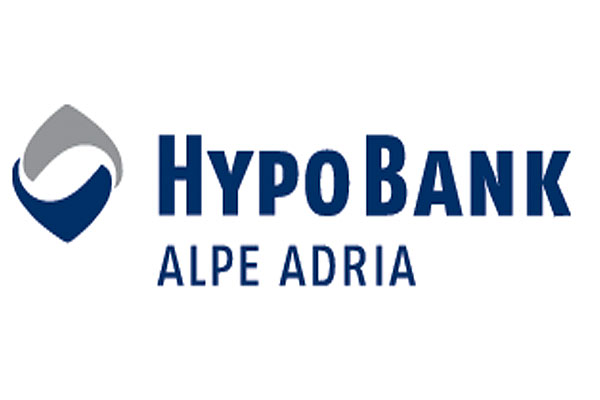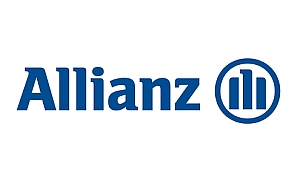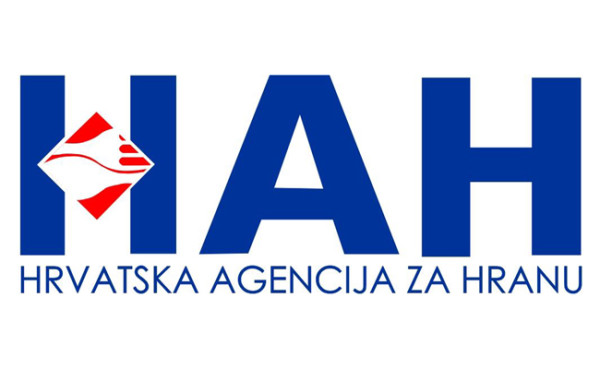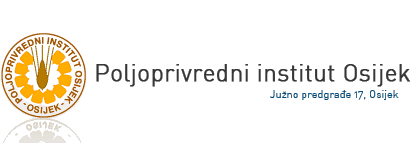Cooperation with economy
After initiating the Graduate university study programme in mathematics, branch Mathematics and Computer Science and branch Financial Mathematics and Statistics, the Department of Mathematics has intensified its contacts with the economy for the purpose of getting the curriculum of the Department of Mathematics closer to current needs and requirements of the real sector as well as for the purpose of familiarising the students of the Department of Mathematics with companies operating in the environment.
Business and professional cooperation of the Department of Mathematics and the real sector includes e.g. the following:
- possible practical training of mathematics students in the companies in question,
- Master's theses or final papers done in cooperation with the companies in question
- additional training of graduate students by experts from the industry,
- participation of experts of the Department of Mathematics in solving real problems arising from the real needs of the companies in question,
- organisation of thematic lectures by experts from the real sector.
A measurable result achieved through cooperation with the real sector is that there are almost no unemployed MMath degree holders who have completed their graduate university study programmes at the Department of Mathematics, Josip Juraj Strossmayer University of Osijek, and potential employers have contacted us directly to ask for professional young people of high quality.
Agreements on cooperation
Department of Mathematics has entered into cooperation agreements with the following companies in the IT sector: IN2, Span, Adacta, Siemens Convergence Creators, as well as an agreement with Osijek Software City, an association that gathers many Osijek-based IT companies and monitors our best students according to the following model:
- the best first- and second-year undergraduate university students (Bachelor level) will be granted a one-day stay in the companies that are part of Osijek Software City;
- the best third-year undergraduate university students (Bachelor level) will be granted a long stay in the companies that are part of Osijek Software City, in order to define possible final paper topics;
- the best first-year graduate university students in Financial Mathematics and Statistics and Mathematics and Computer Science (Master level) will be granted a one-day stay in the companies that are part of Osijek Software City,
- the best second-year graduate university students in Financial Mathematics and Statistics and Mathematics and Computer Science (Master level) will be granted a longer stay in the companies that are part of Osijek Software City, in order to define possible topics for their Master's theses.
A cooperation agreement has also been signed with AlphaScore, a company whose activity is based on credit risk assessment and appropriate software implementation, as well as with the Croatian Food Agency.
In addition to cooperation agreements, there is informal cooperation between the Department of Mathematics and many real sector companies, in the form of participation of teachers and assistants of the Department in solving various professional issues which occur naturally in the operation of such companies. Department of Mathematics has developed continuing cooperation with the Clinical Hospital Centre Osijek, and cooperation with the following companies: Siemens Convergence Creators, Farmeron, Secure Plus te Hrvatska elektroprivreda i Podravska bank.
Practical training
Practical training is carried out with the aim of introducing students to the actual work processes of a working environment and the teamwork in life situations. Practical training coordinators at the Department of Mathematics are:
- Domagoj Matijević, for Mathematics and Computer Science students
- Nenad Šuvak, for Financial Mathematics and Statistics students.
Practical training in the academic year 2013/2014
- Rebeka Čordaš and Mateja Đumić, second-year graduate university students in Financial Mathematics and Statistics (Master level) – a few months of practical training at Siemens Convergence Creators,
- Gabrijel Babić, a second-year graduate university student in Mathematics and Computer Science (Master level), a few months of practical training at companies Siemens Convergence Creators and IN2.
Final papers and Master's theses
Students are invited to write their final papers and Master's theses about different issues in collaboration with industry, to support both the supervisor and the student.
Final papers and Master's theses in the academic year 2013/2014
- one final paper in cooperation with the company Secure Plus Ltd:
- Josip Kedveš, Arduino development platform, supervised by Dr. Domagoj Matijević, Associate Professor,
- two Master's theses in cooperation with the company IN2:
- Rebeka Čordaš, Linear programming and applications, supervised by Dr. Domagoj Matijević, Associate Professor,
- Mateja Đumić, Integer linear programming and applications, supervised by Dr. Domagoj Matijević.
Courses and workshops
Courses/workshops organised by the Department of Mathematics for real sector employees in the academic year 2013/2014
- a course in statistics with an emphasis on risk assessment for employees of the Croatian Food Agency (course duration: 12x45-minute lessons, number of participants: 6)
- a course in using the R programming environment for describing data and statistical analysis for employees of the Agricultural Institute (course in progress, course duration: 30x45-minute lessons; number of participants: 16).
Thematic lectures
Thematic lectures held in the academic year 2013/2014 by real sector professionals
- 27 October 2014 - 'From Mathos to an IT consultant - first-hand experience'
Lecturers: Krešimir Mlinarić, director of Adacta Ltd, Zagreb, and Dajana Rudić, Adacta Ltd, Osijek branch officeCollege graduation is often the beginning of a new chapter in life that is characterised by a job search which is today long and often laborious. But it does not always have to be like that. Our former colleague Dajana Rudić, a MMath degree holder in Financial Mathematics and Statistics, currently working in Adacta's branch office in Osijek, will tell us how a job search process may look like and what to expect from your first job. In addition to her experience, you will have the opportunity to learn more about an IT consultant role and make sure that it has a lot more in common with education on Mathos than it seems at first.
- 16 April 2014 – 'What can the real sector offer to the educational system - choose the best for the future'
Lecturer: Denis Sušac, Mono Ltd, OsijekTopics:- presentation of the company Mono Ltd. and the position of IT in the local community,
- review of the situation in the education system from the standpoint of the real sector and how we can help each other,
- truths and misconceptions about employment opportunities in Osijek, Zagreb and abroad,
- how to improve options after graduation with an emphasis on technologies that are now hot and especially the ones that tend to become hot.
- 26 February 2014 – 'From Mathos to a consultant and an analyst - or having to answer the most difficult questions in the first job interviews'
Lecturer: Krešimir Mlinarić, director of Adacta Ltd, ZagrebTopics:- What exactly do I need from what I got in my university education to get a job and perform well at work - grades, know-how, etc.?
- What do I have after college?
- What is generally done in companies?
- Mathematics and IT are secretly in love.
- The global and the Croatian IT scene.
- Development, implementation, consulting, business systems... – demystification of terminology
- What do IT consultants and analysts do?
- Advantages and disadvantages of the job.
- 22 January 2014 – Presentation of the Osijek company Farmeron
Lecturers: Goran Bokun, director of Product and Technology Department, and Kruno Stražanac, statistician and director of Client ServicesFarmeron is a company that produces software under the same name, a cloud-based application for livestock management. Farmeron staff has identified the following problems as particularly interesting topics for cooperation with the Department of Mathematics:- optimisation of nutrition (a linear programming problem),
- a time series analysis in food prices and milk production,
- assessment of the optimal moment of animal removal,
- analysis of the impact of nutritional elements on the quantity, quality and income from milk,
- the impact of optimisation and the quality of food on the incidence of animal diseases,
- determining statistically significant differences in productivity for two different diets that both meet minimum nutritional requirements based on the basic rules of simulating the growth of the herd,
- making an optimal diet selection algorithm.
- 18 December 2013 - Presentation of the company Siemens Convergence Creators
Lecturer: Boris Bajtl, BSEE, senior solution expertTopics:- presentation of the company Siemens Convergence Creators,
- overview of the situation on the local IT market,
- encouraging creativity and innovation,
- innovation workshops in groups.
- 4 November 2013 - a panel discussion was held on the occasion of opening an Osijek branch office of the company SPAN that was attended by teachers and students of the Department of Mathematics
Topics and lecturers:
- SPAN story (How did we get here where we are now?) - Nikola Dujmović, CEO of SPAN
- SPAN people (What kind of people do we employ?) - Antonija Kapović, HR Director
- SPAN job (What kind of work do we do?) - Ivan Vidaković, software solutions designer and Slaven Mišak, development engineer.
List of companies the Department of Mathematics cooperates with
Department of Mathematics currently cooperates with the following associations and companies according to different models of cooperation:
 Osijek Software City (OSC) is a project initiated in 2012 by a number of Osijek-based IT companies for the purpose of positive action toward the local IT community, increasing the attractiveness of a developer career in Osijek and competitiveness of software programmers in the labour market as well as encouraging entrepreneurship in the ICT sector. OSC acts as an association, which currently gathers eighteen (18) legal and many natural persons.
Osijek Software City (OSC) is a project initiated in 2012 by a number of Osijek-based IT companies for the purpose of positive action toward the local IT community, increasing the attractiveness of a developer career in Osijek and competitiveness of software programmers in the labour market as well as encouraging entrepreneurship in the ICT sector. OSC acts as an association, which currently gathers eighteen (18) legal and many natural persons.
The main goal of this project is employment! From the employer's perspective, this would be the employment of an educated and motivated worker, and from the worker's perspective, this would be getting a job in a perspective and high-quality company. The regional IT industry is currently experiencing a chronic shortage of well-trained personnel, and that is what this project is trying to change, emphasising the knowledge and skills needed for easy employment in companies in this field.
The long-term goal of this project is to achieve global recognition of Osijek as the city in which IT specialists live and work as well as the city in which there are a lot of excellent software companies. We believe that such recognition brings a number of advantages, such as a positive image of the city, an incentive to new investors, contribution to a healthier economy, a recommendation made to potential clients and a "springboard" for start-up companies.
 IN2 Ltd., founded in 1992 in Zagreb, now with over 400 employees, is the largest IT company in Croatia. It is engaged in the development, implementation and maintenance of their own software solutions and services, and implementation of partner software applications whose solutions and services cover all areas of business, with a focus on the public sector, financial sector and insurance, healthcare, telecommunications, economy, utility companies and energy. Since its establishment, IN2 has spread to 11 affiliated companies in six countries of the region, and its projects and solutions have made it also present in Romania, Bulgaria and Albania. IN2 is the biggest Oracle partner in the Adriatic region and a leading partner for Oracle Applications. The company is an Oracle Platinum Partner status holder and part of the Microsoft Partner Network with 1 Gold and 9 Silver competencies.
IN2 Ltd., founded in 1992 in Zagreb, now with over 400 employees, is the largest IT company in Croatia. It is engaged in the development, implementation and maintenance of their own software solutions and services, and implementation of partner software applications whose solutions and services cover all areas of business, with a focus on the public sector, financial sector and insurance, healthcare, telecommunications, economy, utility companies and energy. Since its establishment, IN2 has spread to 11 affiliated companies in six countries of the region, and its projects and solutions have made it also present in Romania, Bulgaria and Albania. IN2 is the biggest Oracle partner in the Adriatic region and a leading partner for Oracle Applications. The company is an Oracle Platinum Partner status holder and part of the Microsoft Partner Network with 1 Gold and 9 Silver competencies. Span Ltd., established in 1993 in Zagreb, now with over 100 employees, is the leading Croatian company in providing professional services of planning and development of information systems, and technical support for users. The company is a Microsoft Gold Certified Partner status holder with 9 Gold and Silver competencies.
Span Ltd., established in 1993 in Zagreb, now with over 100 employees, is the leading Croatian company in providing professional services of planning and development of information systems, and technical support for users. The company is a Microsoft Gold Certified Partner status holder with 9 Gold and Silver competencies. Adacta Ltd., founded in 1989 in Ljubljana, is a leading regional company engaged in the development and introduction of business information solutions to global IT manufacturers. Today Adacta group comprises a company in Zagreb, Ljubljana (with a branch in Maribor) and Belgrade. The group employs more than 275 professionals who have successfully participated in more than 350 projects of reconstruction of existing business information systems. Adacta is the only company in Croatia with Microsoft Gold ERP Competency with a market share of more than 60 percent and it is the leading Microsoft Partner for Microsoft Dynamics solutions in Croatia and the region.
Adacta Ltd., founded in 1989 in Ljubljana, is a leading regional company engaged in the development and introduction of business information solutions to global IT manufacturers. Today Adacta group comprises a company in Zagreb, Ljubljana (with a branch in Maribor) and Belgrade. The group employs more than 275 professionals who have successfully participated in more than 350 projects of reconstruction of existing business information systems. Adacta is the only company in Croatia with Microsoft Gold ERP Competency with a market share of more than 60 percent and it is the leading Microsoft Partner for Microsoft Dynamics solutions in Croatia and the region.-
 Alpha score Ltd. is a knowledge-based company that helps its customers make decisions by providing services referring to making credit score models, credit risk assessment, development of business intelligence applications and data mining. Alpha score Ltd. brings together a team of highly educated people with specialisations in the areas of credit risk, financial management, financial analysis, mathematics, statistics and IT technology. Alpha score Ltd. is included in the Croatian programme for innovative technological development, which is a special form of integration of scientific technology policies aimed at linking the public scientific research sector and the economy carried out by the Ministry of Science, Education and Sports to promote knowledge-based economy.
Alpha score Ltd. is a knowledge-based company that helps its customers make decisions by providing services referring to making credit score models, credit risk assessment, development of business intelligence applications and data mining. Alpha score Ltd. brings together a team of highly educated people with specialisations in the areas of credit risk, financial management, financial analysis, mathematics, statistics and IT technology. Alpha score Ltd. is included in the Croatian programme for innovative technological development, which is a special form of integration of scientific technology policies aimed at linking the public scientific research sector and the economy carried out by the Ministry of Science, Education and Sports to promote knowledge-based economy. -
 Podravska bank is one of the oldest banks in the Republic of Croatia, which offers a complete banking service and a number of financial services to citizens and entrepreneurs. By constantly investing in the professional development of employees, encouraging creativity and innovation of employees, as well as well-directed investments, the Bank has achieved adequate quality ranking it among the best banks.
Podravska bank is one of the oldest banks in the Republic of Croatia, which offers a complete banking service and a number of financial services to citizens and entrepreneurs. By constantly investing in the professional development of employees, encouraging creativity and innovation of employees, as well as well-directed investments, the Bank has achieved adequate quality ranking it among the best banks. -
 Hypo Alpe-Adria-Bank JSC has been present in the Croatian market since 1996, offering financial products and services to legal entities, public institutions and citizens. Since the conclusion of the merger of Slavonska banka Osijek in early 2009, Hypo Alpe-Adria Bank continues to develop its business and offers a wide range of services and products in all Croatian regions.
Hypo Alpe-Adria-Bank JSC has been present in the Croatian market since 1996, offering financial products and services to legal entities, public institutions and citizens. Since the conclusion of the merger of Slavonska banka Osijek in early 2009, Hypo Alpe-Adria Bank continues to develop its business and offers a wide range of services and products in all Croatian regions. -
 Allianz has been present in Croatia since 1999, and today it is the second Croatian insurance company. In addition to insurance, Allianz group also comprises AZ Mandatory Pension Fund and AZ Voluntary Pension Fund as well as three Allianz investment funds (Cash, Portfolio and Equity).
Allianz has been present in Croatia since 1999, and today it is the second Croatian insurance company. In addition to insurance, Allianz group also comprises AZ Mandatory Pension Fund and AZ Voluntary Pension Fund as well as three Allianz investment funds (Cash, Portfolio and Equity). -
 Croatian Food Agency (CFA) is a legal entity based in Osijek that was founded by the Croatian Government under the Food Act. It conducts scientific and professional activities in the field of food safety and animal feed safety. It is a national reference point for risk assessment in the area of food safety. In addition, the CFA is the contact point for cooperation with the European Food Safety Authority (EFSA) in the area of risk assessment.
Croatian Food Agency (CFA) is a legal entity based in Osijek that was founded by the Croatian Government under the Food Act. It conducts scientific and professional activities in the field of food safety and animal feed safety. It is a national reference point for risk assessment in the area of food safety. In addition, the CFA is the contact point for cooperation with the European Food Safety Authority (EFSA) in the area of risk assessment. -
 Agricultural Institute Osijek, with a tradition stretching back to 1878, today it operates as a top public research institute, whose core activities include scientific and development research in the field of genetics, and in this respect development (breeding) and seed growing of a variety of sorts and hybrids of the most important field cultures in the Republic of Croatia. As a state institute, together with higher education institutions, the Agricultural Institute is actively involved in establishing the scientific infrastructure and participates in the higher education process.
Agricultural Institute Osijek, with a tradition stretching back to 1878, today it operates as a top public research institute, whose core activities include scientific and development research in the field of genetics, and in this respect development (breeding) and seed growing of a variety of sorts and hybrids of the most important field cultures in the Republic of Croatia. As a state institute, together with higher education institutions, the Agricultural Institute is actively involved in establishing the scientific infrastructure and participates in the higher education process. -
 Clinical Hospital Centre Osijek has a long tradition of existence. Osijek Hospital has been particularly developed and modernised since 1950. In the period 1980-1990, professional training was provided in all areas, and numerous scientific and professional papers were published, which contributed to the creation of educational and teaching activities and scientific research. The first-semester classes at Osijek School of Medicine started in the academic year 1979/1980, and Osijek General Hospital became a teaching base of the Medical School.
Clinical Hospital Centre Osijek has a long tradition of existence. Osijek Hospital has been particularly developed and modernised since 1950. In the period 1980-1990, professional training was provided in all areas, and numerous scientific and professional papers were published, which contributed to the creation of educational and teaching activities and scientific research. The first-semester classes at Osijek School of Medicine started in the academic year 1979/1980, and Osijek General Hospital became a teaching base of the Medical School.

